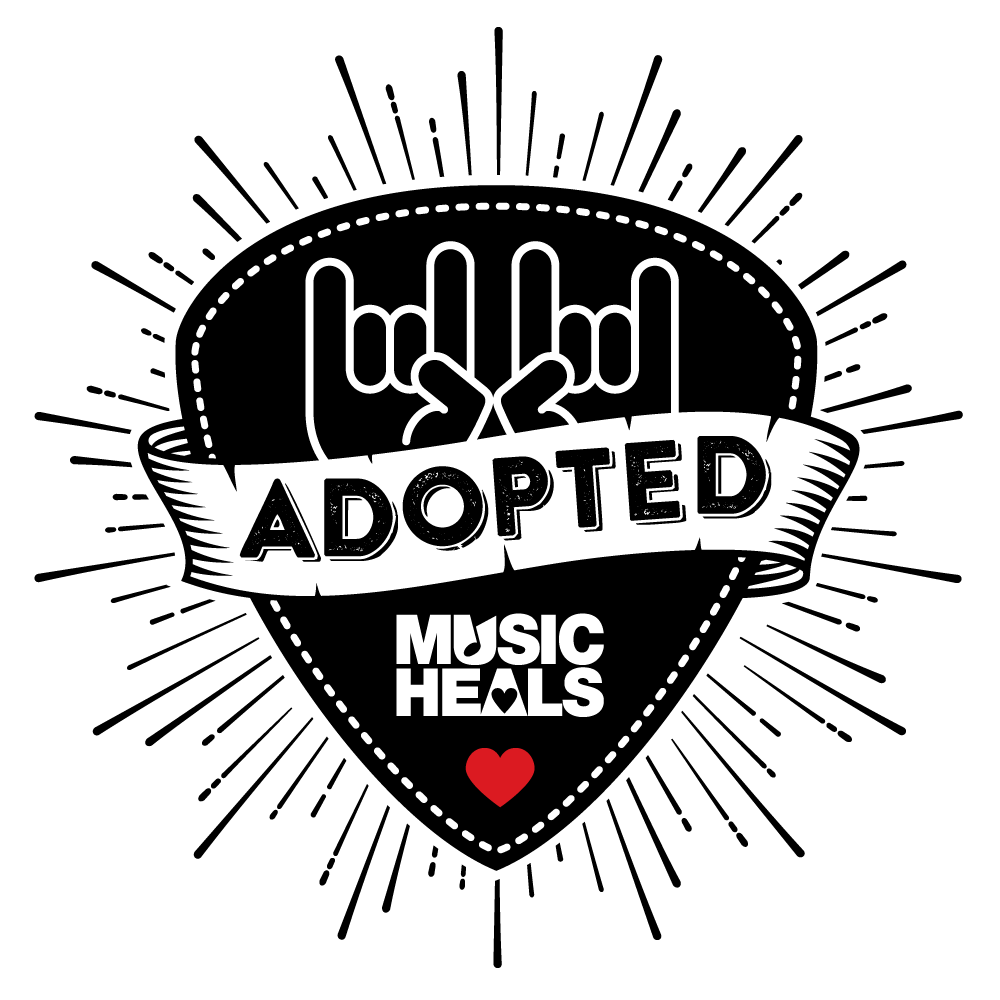Surrey, BC



“I believe [music therapy] is an area of treatment that was extremely valuable to my recovery… I will miss this and yet never forget what it has done for my life going forward.”
In 2021, the Music Therapy program at Phoenix was able to continue providing services by running groups for each individual floor, lessons and jams for individual floors, and individual music therapy and recording sessions for members of transitional housing and the 90 day recovery program participants. Music Heals funding supplemented 1 additional group per week.
As a result of the Music Heals funding, 98 individual clients have been served since January, and a projected 140 – 150 will be served by the end of the year.
These groups included relaxation with music, drum circles, lyric analysis, emotional processing through music, and creative arts projects. Residents are often asking about how they can have more music therapy onsite, and how Phoenix Society can deliver more programs for the residents. The music therapy groups are extremely important, as they can be the deepest point of contact for residents in the treatment program, and are often anticipated all week. They provide a different kind of outlet and experience for residents – one that is steeped in calm, safety and even joy.
The music therapy department also partnered with the counselling and events department in September to run a vigil to address the huge amount of loss that they as a community have faced over the past year. They hung hearts on a tree with names of people that the residents and staff wanted to remember who had passed away in the past year. Having live music there acted as a safe container for residents to feel and experience their emotions.
From Music Therapist Felicia:
“The population of residents at Phoenix, and who utilize the music therapy program is vast and encompasses many different demographics. Because addiction and mental health crises can happen to anyone in society, we have a broad range of people who access our programs.
Some are Indigenous peoples from rural and northern communities, many have experienced homelessness and poverty in the lower mainland area, some are immigrants or newcomers to Canada, and many have experienced trauma, neglect and abuse. The wide demographics of any given group provide challenges in programming; however, allowing people to play music that speaks to them and is meaningful to them, can help to strengthen their sense of self, and showcases who they are and how they want to be seen in the world. It gives the power back to people who have often felt disempowered for so long and celebrates difference and individuality as well as group connection.”
19 – 75
From Music Therapist Felicia:
“Music Therapy uniquely addressed the mental health needs of our clients in 2021 by providing a constant, grounding group for clients. While many of the other programs were cut over the year, music therapy was able to keep running and provided a constant source of grounding for them. The groups centered on the clients’ needs even more so than usual – if they needed to release energy, we played the drums, if they needed more calm, we provided longer relaxations, if they had no words to say, we expressed through listening to a favorite song. All the interventions of music therapy at Phoenix helped address the unique mental health needs of clients. Furthermore, the past year was a devastating one in terms of drug poisoning deaths in our community. We, as a community, are all grieving loss after loss. Music gives permission to put the emotions of loss and grief outside of oneself and allows for emotions to come to the surface to be expressed and processed.”
Due to ongoing safety measures, larger group programming that included multiple floors and buildings was unable to run. This meant a pause on weekly open music jams, monthly music shows and karaoke nights.
Despite this, the music therapy program at Phoenix has been able to continue operating as Music Therapist Felicia has shifted and pivoted to ensure everyone continues to have access to sessions.
Phoenix is split up into 4 residential treatment floors who have all been bubbling as individual floors. Felicia cannot run any programs that bring them in contact with each other, or with any of the other residents who live in individual transitional housing suites. It has been a challenge to make everything work; however, she has been able to continue offering smaller group jams, lessons, as well as one-on-one sessions. She has even led some group recording projects, which can be heard here:
Your support would allow Phoenix Society to add another supportive music therapy group for their Transition House residents.
Music therapy sessions have been a cornerstone of many resident’s treatment plans, and they comment that it is the highlight of their week.
Additionally, Phoenix is currently writing a grant to access more funding so that they can better support the transitional housing residents. Due to the overdose epidemic, their community has lost a lot of residents this past year. Residents in transitional housing suites are struggling to stay sober and access the supports for all the grief they are experiencing. Your adoption of this program will allow them to offer more programming for transitional housing residents as they continue to fight the battle against addiction and substance abuse.
From Music Therapist Felicia Wall:
“Adrian has been a member of the Phoenix community for almost 2 years now. He completed treatment on our residential treatment floors, and has now been living in Transitional Housing here at Phoenix for over 1 year. Adrian is an incredibly talented and creative person – he is constantly writing songs off the top of his head and coming up with ideas for new and creative endeavors.
He has been attending individual music therapy sessions fairly regularly for a year now. Last year, he recorded an old song he had written for the album we released at Phoenix. This year, he is working on writing and recording new songs. The process of recording and completing a song can be long and tedious, but the end result is a product he can be proud of and share with his friends and family who don’t live in the area.
Adrian has dedicated his time to engage in music therapy and has found it to be an incredibly powerful outlet and resource as he navigates recovery and sobriety. Music is a corner-stone in his life: the music therapy program at Phoenix has allowed him to use his strengths and talents as a creative outlet and way to connect with himself and others in a deeper way.”

“I have been a certified music therapist working in the Vancouver area since 2015. I work from a strengths-based model of practice, in which I place a high value on the therapeutic relationship. I work mainly with youth and adults who have been marginalized from society and who have experienced poverty, drug addiction, discrimination, abuse and mental health issues. Music therapy is a powerful tool for connection, expression and healing in these contexts, and I am constantly struck by how impactful this work is for clients.”
No contribution is too small!